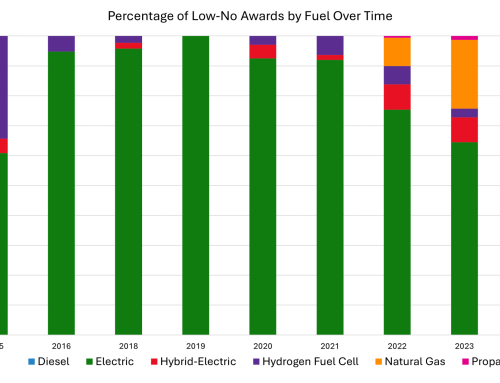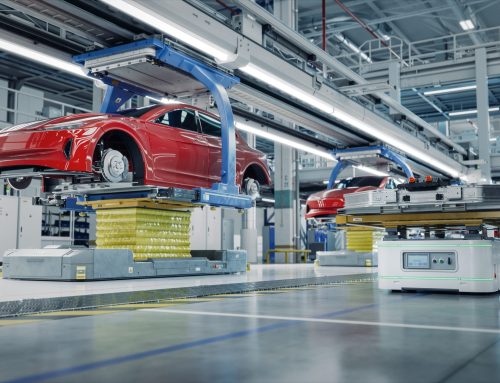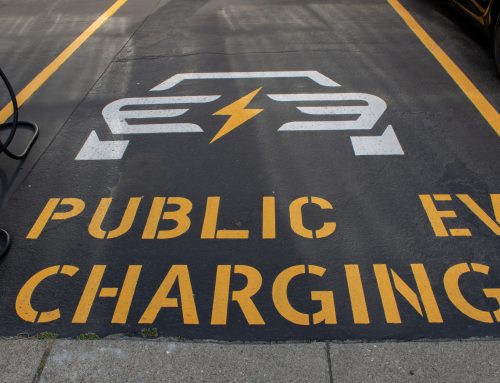
|
Source: EV Hub State legislatures have been busy this session, and electric vehicles (EVs) are on the agenda all over the country. Earlier this year, we provided a legislative rundown on introduced EV legislation. Here are some policy developments we have tracked since our last update. First and foremost, two more states have announced plans to adopt Advanced Clean Cars II (ACC II) regulations this year: Maryland and New Jersey. Both states will proceed with a public hearing and rulemaking next. Maryland and New Jersey join the fast-growing list of states to adopt the regulations. There are now ten states that have either adopted or are in the process of adopting the rules. Read more on ACC II here. Last week, we wrote about the growing pains of the EV charging industry and cross-sector efforts to better regulate EV chargers. Since our last legislative update, many states have introduced bills to improve charging access and reliability, including Maryland and New York. Maryland’s House Bill 834, or the Electric Vehicle Charging Reliability Act, puts forward a number of measures to ensure reliability, such as requiring that electric companies that operate an EV charging network ensure EV chargers in their network have an average annual uptime of 97 percent or greater and enforce reporting requirements. Similarly, New York’s Senate Bill 5120 (with public support from FLO and ChargerHelp!) requires the Public Service Commission to develop reliability and reporting standards for EV chargers by January 1, 2025. Massachusetts and North Carolina have also introduced EV charging regulations. Massachusetts’ House Docket 2530 proposes to establish safety standards and regulations for EV charging stations, including charger accessibility and maintenance standards. In North Carolina, a bipartisan bill, Senate Bill 316, creates designated parking spaces for EV charging (and penalties for violating the law) and requires appropriate EV charging signage. In addition to public charging standards, North Carolina’s House Bill 318 requires that new construction of single and multi-family dwellings must be “EV charger ready.” Other states have introduced more contentious EV bills, such as Georgia. Georgia’s Senate Bill 146 seeks to implement an excise tax of approximately 3.5 cents per kWh on public EV charging. The measure has drawn criticism from EV advocacy groups who argue that lower-income EV drivers will be disproportionately impacted given they are more reliant on public chargers in addition to the state’s existing high EV registration fees. Georgia is not alone in introducing bills that could have a negative impact on EV drivers. Kansas’ House Bill 2004, or the “EV Energy Equity Road Repair Tax,” would impose an excise tax of three cents per kWh on public EV charging. Similarly, Nebraska’s Legislature Bill 505 proposes to increase the registration fee for EVs from $75 to $200 (or $125 for plug-in hybrid EVs) and an excise tax of three cents per kWh for commercial EV charging stations. A similar attempt was made in 2022 (though the cap was $150). See the full list below for other state legislation developments, or dive in deeper on the State Policy Dashboard. If we missed anything, respond to this email and let us know! |
Active:
- Georgia: SB146. Creates an charging tax on public EV charging and allows charging service providers to sell electricity by the kWh.
- Illinois: SB40. The “Electric Vehicle Charging Act” requires new residential construction to include electric vehicle capable parking spaces or installed electric vehicle supply equipment.
- Indiana: SB241. Requires the BMV to submit a report annually to the Indiana utility regulatory commission that includes information regarding the number of electric vehicles registered by county
- Kansas: HB2004. Imposes a tax of $0.03 per kWh on electricity provided by public EV charging stations.
- Maryland: HB101. Allows condiminiums to grant leases in excess of 1 year for the installation and use of leased clean energy equipment.
- Maryland: HB830. Modifies requirements for EVSE parking spaces in new residential construction.
- Maryland: HB312.
Establishing a fee of $14 every 2 years for vehicles not subject to the Vehicle Emissions Inspection Program. Funds are used to provide rebates for EVs and EVSE. - Maryland: SB224. Requires the Department of the Environment to adopt Advanced Clean Trucks regulations on or before December 1, 2023 to go into effect in Model Year 2027. Also requires a needs assessment, establishes a grant program, and allows the department to delay adoption if needed.
- Maryland: HB550. Extends the Electric Vehicle Recharging Equipment Program through fiscal year 2026, repeals rebates for retail service station dealers, and repeals rebate limit.
- Maryland: HB230. Requires the Department of the Environment to adopt regulations on or before December 1, 2023, establishing requirements for the sale of new zero-emission medium- and heavy-duty vehicles in the State
- Maryland: HB7. Altering the Electric Vehicle Recharging Equipment Rebate Program by extending the duration of the Program through fiscal year 2027, increasing the total amount of rebates issued annually under the Program to $2,000,000.
- Maryland: HB834. Requires the Public Service Commission to expand the EV Pilot Program to allow participating electric companies to install EV charging stations in multifamily dwellings in underserved communities and requires utility-operated EV charging stations achieve 97% uptime.
- Maryland: HB123. Authorizing certain plug-in electric drive vehicles for which a permit has been issued by the Motor Vehicle Administration to use high occupancy vehicle (HOV) lanes regardless of the number of passengers in the vehicles
- Massachusetts: HD2530. Establishes safety standards and regulations for electric vehicle charging stations including accessbility and charger reliability
- Minnesota: HF413. Establishes requirement for state fleet to purchase EVs unless total cost of ownership exceeds 110 percent of comparative non-EV, requires EV training for motor vehicle dealer employees, requires utilities to file plans with Public Utilities Commission to promote EVs, establishes $20 million rebate program offering $2,500 for new EV and $500 for used EV, and establishes $4 million grant program for automobile dealers for certification allowing electric vehicle sales.
- Nebraska: LB505. Imposes annual fee of $200 for BEVs and $125 for PHEVs and an excise tax on electricity used as a motor fuel of 3 cents per kWh.
- New York: S749. Requires at least one electric charging station for every one hundred fifty thousand New York state residents
- New York: S1736. Requires electric vehicle charging stations and level 2 electric vehicle capable parking spaces at certain residential and commercial buildings.
- New York: A1721. Requires public service commission to establish electric vehicle charging station reliability reporting and standards by January 1, 2025.
- New York: S110. Requires commercial garages containing electric vehicle charging stations to ensure public access to such charging stations
- New York: S487. Directs the New York State Department of Transportation, in conjunction with the New York State Energy Research and Development Authority and the New York Power Authority, to promulgate rules and regulations for the standardization of public charging stations for electric vehicles.
- New York: S489. Requires NYSERDA to develop a comprehensive electric vehicle fast charging station implementation plan
- North Carolina: HB318. Requires that new residential construction of one- and two-family dwellings includes an electic circuit capable of accommodating an electric vehicle charging device
- North Carolina: SB316. Establishes regulations for electric vehicle charging stations, such as designated parking spaces for electric vehicles, signage for electric vehicle parking spaces, and pentalties for violations of mentioned regulations.
- Oklahoma: SB502. The Electric Vehicle Charging Act allows charging service providers to sell electricity by the kWh and requires utilities to establish a public charging rate.
- Pennsylvania: SB157. Establishes a Residential Electric Vehicle Charging Station Tax Credit
- Washington: HB1368. Requires all school buses purchased in the state to be zero-emissions by 2035 and establishes an account to fund the purchase of zero emission school buses.
Adjourned:
- West Virginia: HB2260. Repeals additional registration fees for alternative fuel vehicles
- Wyoming: SJ0004. A bill that seeks to phase out new electric vehicle sales by 2035
Failed:
- Virginia: HB1790. Creates a tax credit for taxable years 2023 through 2027 for expenses incurred in connection with installing qualified electric vehicle charging equipment in the Commonwealth in an amount equal to 30 percent of the cost of purchasing and installing such equipment during the taxable year.
- Virginia: SB1312. Provides that any locality may by ordinance require electric vehicle charging stations as part of subdivision or site plan approval for a development containing commercial, industrial, or multifamily residential uses with a density of seven residential dwelling units per acre or greater.
- Virginia: HB2468. Streamlines process for direct sales manufacturers to operate in Virginia
- Virginia: HB1378. Repeals the requirement that the State Air Pollution Control Board implement a low-emissions and zero-emissions vehicle program for motor vehicles with a model year of 2025 and later. The bill prohibits the Board from adopting or enforcing any model year standards related to control of emissions from new motor vehicles or new motor vehicle engines
- Virginia: HB1588. Creates the Electric Vehicle Rural Infrastructure Program and Fund to assist private developers with non-utility costs associated with the installation of electric vehicle charging stations. The bill provides that a private developer is eligible to receive grants of 70 percent of such non-utility costs for electric vehicle charging stations installed in a city or county that meets the criteria of a distressed locality as provided in the bill and caps the total amount of grants awarded in any fiscal year at $25 million.
- Virginia: HB1766. Requires the Board of Housing and Community Development to promulgate regulations for electric vehicle charging infrastructure standards for multifamily residential housing construction projects consisting of more than 25 residential dwelling units. The standards shall require a developer of such multifamily residential housing construction projects to ensure that at least 25 percent of the available parking spaces are electric vehicle charging ready during the design and construction process.
- West Virginia: SB212. Establishing rebate for registration fees for plug-in hybrid vehicles


